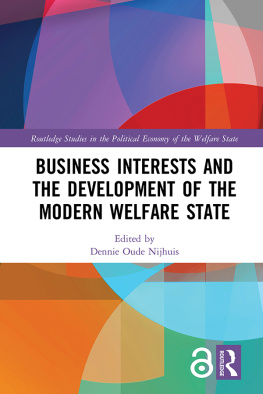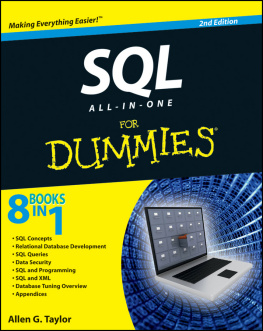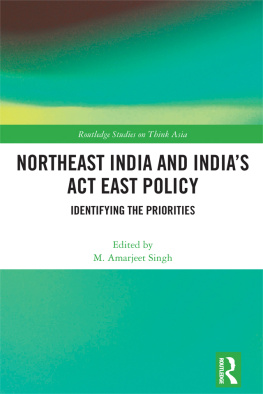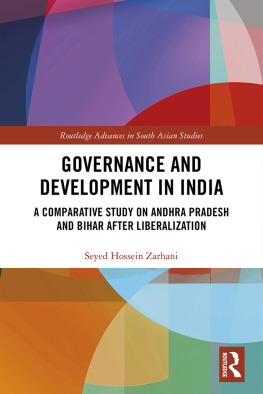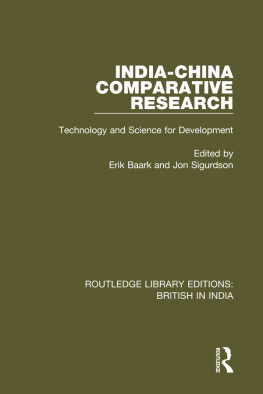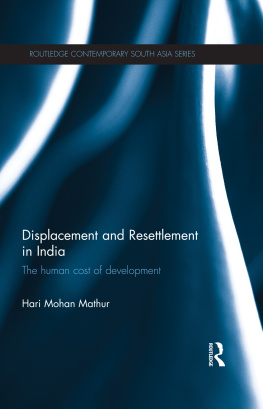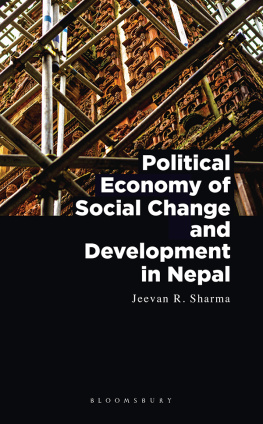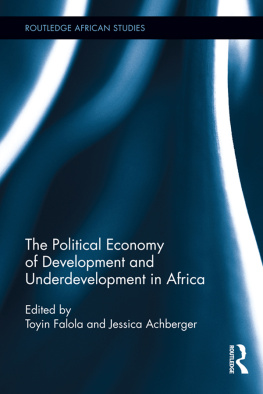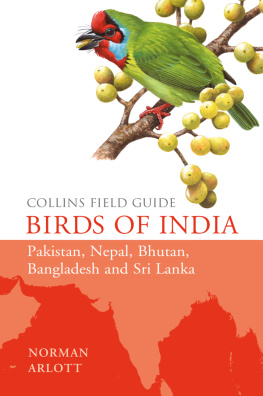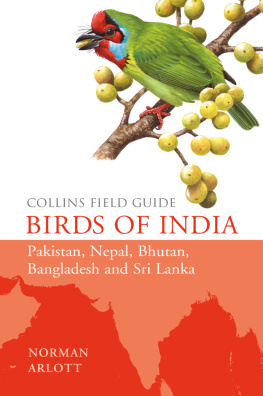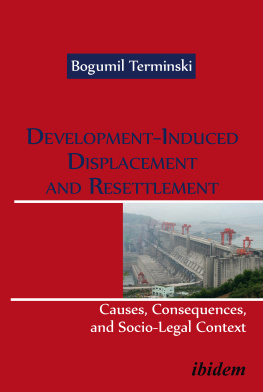First published 2021
by Routledge
2 Park Square, Milton Park, Abingdon, Oxon OX14 4RN
and by Routledge
52 Vanderbilt Avenue, New York, NY 10017
Routledge is an imprint of the Taylor & Francis Group, an informa business
2021 selection and editorial matter, Sujit Kumar Mishra and R Siva Prasad; individual chapters, the contributors; and Aakar Books
The right of Sujit Kumar Mishra and R Siva Prasad to be identified as the authors of the editorial material, and of the authors for their individual chapters, has been asserted in accordance with sections 77 and 78 of the Copyright, Designs and Patents Act 1988.
All rights reserved. No part of this book may be reprinted or reproduced or utilised in any form or by any electronic, mechanical, or other means, now known or hereafter invented, including photocopying and recording, or in any information storage or retrieval system, without permission in writing from the publishers.
Trademark notice: Product or corporate names may be trademarks or registered trademarks, and are used only for identification and explanation without intent to infringe.
Co-published with Aakar Books, New Delhi. Print edition not for sale in South Asia (India, Sri Lanka, Nepal, Bangladesh, Pakistan or Bhutan)
British Library Cataloguing-in-Publication Data
A catalogue record for this book is available from the British Library
Library of Congress Cataloging-in-Publication Data
A catalog record for this book has been requested
ISBN: 978-0-367-61885-8 (hbk)
ISBN: 978-1-003-10699-9 (ebk)
Typeset in Palatino
by Arpit Printographers, New Delhi 110092
This book edited by Dr. Sujit Kumar Mishra and Prof. R Siva Prasad deals with contemporary issues relating to the political economy of development in India. The foremost among them is the very meaning, purpose and objective of development. Questions being asked today are what development ultimately amounts to? Who are its beneficiaries? And what is the position of the state as a stakeholder in the process of development? Another issue being debated today is the institutional instruments devised by the state to mediate in the process of development. The chapters on this topic deal with the principles and objectives which should guide the state machinery entrusted with the task of development. Another construct which has acquired salience recently and is discussed in the book, is the importance and role of development community in the process of development. How should this construct be defined? What legitimacy it has? And how it can be enabled to play its due role as an agent and beneficiary of development?
The above issues have been examined in this book with the help of a number of case studies from across the nation, of problems faced by the people displaced by development projects. It emerges from case after case that the development community defined as those adversely affected by development projects, are neglected in the process of the negotiation for the projects. Besides, in these negotiations, the wider purposes of development, as defined by Professor Amartya Sen, i.e. development as freedom and as the creation of capabilities, are totally ignored. Finally, the book advances suggestions on how the re-settlement of people displaced from projects can be done in a just, fair and effective manner. The main recommendation is that the regulatory mechanism and institution should consciously involve the development community in the negotiations for the project and take into cognizance its perception on the consequences of intervention for development.
Development has been defined in the Oxford Dictionary as a change in conditions or a stage of advancement or the realization of full potential. From this it appears that development is a continuing process. It is happening all the time. What is important is its pace and the extent to which it brings about changes in conditions. Development to be worthwhile cannot be business as usual. It cannot proceed on the basis of the state or society getting reconciled to the status quo. It is for this reason that concepts such as big push, all around transformation and stages of development were introduced in the literature on development.
Industrialization plays a key role in the process of transformation of an economy and has, therefore, been regarded as the next important stage of development for an economy which is basically agricultural or depends on a single or a few primary commodities for deriving national income. Indias Second Development Plan conceived by Jawaharlal Nehru and Professor P.C. Mahalanobis was predicated on the India economy making a transition to the stage of industrialization. The celebrated Argentinean economist Raul Prebisch regarded transition to industrialization as inevitable for the realization of the full potentials of the Latin American economies. Like Nehru and Mahalanobis, Prebisch believed in import substitution as an important strategy for making a transition to the stage of industrialization. According to him, for smaller Latin America economies, import substitution was possible only by the enlargement of market through regional or sub-regional integration. Thus, one of the major contributions of Prebisch in the realism of development, was the role assigned in it to sub-regional and regional integration. Prebisch played a pioneering role in translating this concept into reality in Latin America.
W.W. Rostow introduced the concept of stages of development through which developing countries have to transit in order to reach what he called the take off stage or the stage after which development sustains itself by its own momentum without the infusion of massive capital or other factors of production. After the take off, the economy becomes self-sustained. We will see later that in the late 1980s, sustainability acquired a somewhat different connotation.
In the first decade and a half of the post-Second World War period, development was identified with growth, that is, rate of increase in national and the per capita incomes. Wider purposes of development, such as all round structural changes in the economy and the building of human capability mainly through progress in health and education, did not come into play during this period. It was also not appreciated that the participation by the people in the process of development was as important as the deployment of inputs for development. Theodore Schultz played the pioneering role by his research in underlining the importance of the human factor for development. Amartya Sen was mainly responsible for highlighting expansion of human capability, exercise of freedom and widening of choices as important objectives of development. He regarded them as having both intrinsic and instrumental values, that is, both as an end result of as well as contributory factors for development.



